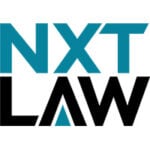-
Please provide a high-level overview of the blockchain market in your jurisdiction. In what business or public sectors are you seeing blockchain or other distributed ledger technologies being adopted?
Japan was the first country to establish a regulatory framework for crypto assets (“Crypto Assets”). Perhaps because of this head start, adoption of blockchain technology is now fairly prevalent in the Japanese financial industry. (As of August 31, 2024, there are 29 licensed Crypto Asset exchange service providers (“CAESPs”) in Japan). Recently, a bill for amending the Payment Services Act (the “PSA”) was passed by the Diet and promulgated in June 2022, with the aim of introducing new regulations on stable coins. The amendments entered into force on June 1, 2023.
Since 2020, security tokens, sometimes referred to as digital securities, have been in the spotlight. As a result of recent amendments to the relevant laws and regulations, an increasing number of financial institutions are entering this new market, focusing mainly on digital corporate notes and tokenised equity interests in real estate funds. For instance, a subsidiary of Kenedix, one of the leading real estate companies in Japan, launched the first public offering of asset-backed security tokens in Japan in July 2021, and multiple similar projects thereafter. Most of such asset-backed security tokens are based on a beneficiary certificate issuance trust scheme that utilises a blockchain platform. In addition, digital art and digital trading cards represented by non-fungible token (“NFTs”), which are non-replaceable digital tokens issued on a blockchain, have recently been traded for considerable amounts. As a result, NFTs have garnered considerable attention in Japan. NFTs are considered innovative because they involve the creation of unique, one-of-a-kind data based on blockchain technology, unlike other digital data that are inherently free and easy to copy.
From 2022 to 2025, stablecoin was the one of the key focus areas in the Japanese Fintech industry. The bill for amending the PSA was passed by the Diet and promulgated in June 2022, with the aim of introducing new regulations on stable coins. This amendment has entered into force on June 1, 2023. On March 25, 2025, Circle announced that SBI VC Trade, a cryptocurrency exchange in Japan, would start listing and distributing USDC (i.e., a stablecoin issued by Circle) on March 26, 2025, while other leading exchanges, i.e., Binance Japan, bitbank, and bitFlyer, would do the same in the near future. This was an epoch-making moment for the blockchain ecosystem in Japan, as this made USDC the first and only stablecoin approved for use in Japan.
These developments demonstrate that the application of blockchain technology to business is moving from the stage of Proof of Concept (“PoC”) to the stage of practical application.
-
Please outline the principal legislation and the regulators most relevant to the use of blockchain technologies in your jurisdiction. In particular, is there any blockchain-specific legislation or are there any blockchain-specific regulatory frameworks in your jurisdiction, either now or envisaged in the short or mid-term?
No blockchain-specific regulatory framework currently exists in Japan, nor is such regulatory framework anticipated in the near future. Accordingly, blockchain or related businesses and services will be regulated under existing laws or regulations, depending on the legal characteristic of the token minted on a blockchain or the substance of such services.
For example:
- if the tokens minted on a blockchain (“Blockchain-minted Tokens”) fall within the definition of “Crypto Asset” under the PSA, then a business operator who purchases or sells such tokens in the course of its business will be regulated as a CAESP;
- a person who sells, purchases or handles the public offering of Blockchain-minted Tokens that fall within the definition of “securities” under the Financial Instruments and Exchange Act (the “FIEA”) must be registered as a Type I Financial Instruments Business Operator;
- an issuer of Blockchain-minted Tokens that are pegged to fiat currencies (such as the JPY or USD) (i.e., stable coins), or an affiliate of such issuer who guarantees the redemption of such stable coins in fiat currencies may be required to undergo licensing as a Bank under the Banking Act, a fund remittance business operator (“FRBO”) under the PSA , or as a trust company under the Trust Business Act; ;
- a business operator that handles the personal information of its users may be subject to the Act on the Protection of Personal Information (“APPI”); and
- issuance of NFTs and provision of trading services in respect of NFTs are not subject to financial regulations.
-
What is the current attitude of the government and of regulators to the use of blockchain technology in your jurisdiction?
The Japanese government takes a generally positive view of the use of blockchain technology in various kinds of businesses.
For instance, in June 2019, the Japanese government published an “Action Plan of the Growth Strategy”1, which discussed the importance of the use of blockchain technology, stating that “AI, IoT, robots, big data, blockchain …are general purpose technology (GPT) that broadly affect all industries, similar to adoption of electric power from the 19th to 20th century and IT inroads through the end of the 20th century.”
In addition, in July 2020, the Japanese government published a “Follow-up for Growth Strategy”2, stating that “In a decentralized financial system based on blockchain technology, where there are no regulated intermediaries, the Japanese Government will lead the international discussion by actively contributing to the Blockchain Governance Initiative Network (BGIN) to achieve financial administrative objectives, such as financial system stability, user protection and prevention of money laundering, etc.”.
On June 18, 2021 the Japanese cabinet approved the “Growth Strategy (2021),” which includes facilitation of blockchain technology. The development of an eco-system surrounding NFTs and Security tokens is also specifically mentioned in the “Plans for Implementing Growth Strategy” paper published on the same date3.
Furthermore, it was stipulated in a paper entitled “Grand Design and Action Plan for a New Form of Capitalism 2023 Revised Version”, which was approved by the Cabinet in June 2023, that the Japanese government would foster the development of an environment for the promotion of web3, including the use of NFTs and decentralised autonomous organisations (DAOs) based on blockchain technology.
The web3 project team of the Digital Society Promotion Headquarters of the Liberal Democratic Party’s Policy Research Council also published the ‘web3 White Paper 2024’ on 21 May 2024, to address various issues related to the promotion of web3.
-
Is there a central bank digital currency (‘CBDC’) project in your jurisdiction? If so, what is the status of the project?
The Bank of Japan (“BOJ”) commenced its PoC phase of a CBDC on April 5, 2021. The aim for phase 1 of the PoC was to develop a test environment for the CBDC system and conduct experiments on the basic functions that are central to the CBDC as a payment instrument, such as functions relating to issuance, distribution, and redemption. Phase 1 of the PoC ended in March 2022.
In “Proof-of-Concept Phase 2”, conducted from April 2022 to March 2023, the BOJ added several peripheral functions to the CBDC, in order to ascertain certain important processing performance and technical capabilities in respect of the CBDC ledger. The BOJ also looked at the possibility of applying new technologies to data models and databases in respect of the CBDC.
Thereafter, since April 2023, the BOJ has been proceeding with a pilot program with the aim of evaluating certain technical aspects of CBDC that were not explored in the abovementioned PoCs, leveraging the expertise and insights of the private sector. The pilot program revolves around two pillars: “development of a system for the pilot program and experimentation” and the “CBDC Forum”. Under the former, performance tests are being conducted on the system developed by the BOJ, including desktop experimentation of various types on functions that have not been implemented in the system. Under the latter, the BOJ, in its capacity secretariat, holds practical discussions on a wide range of themes in respect of retail payments with the private sector.
The government of Japan has so far not decided whether to issue any CBDC in Japan, but discussions continue to be held in this regard.
-
What is the current approach in your jurisdiction to the treatment of cryptoassets and decentralised finance (‘DeFi’) for the purposes of financial regulation?
One of the key issues under Japanese law in respect of Crypto Assets is whether activities involving Decentralized Exchanges (“DEXs”) constitute a Crypto Asset Exchange Service (“CAES”) as defined by the PSA. More specifically, the question is whether developers of DEX smart contracts, providers of user interfaces (“UI”), and large holders of governance tokens are intermediating in the purchase or exchange of Crypto Assets.
Recently, the Financial Services Agency of Japan (“FSA”) disclosed the status of its consideration of a policy for DEXs in discussion materials4 for the Working Group on CryptoAsset Systems of the Financial System Council, which the FSA established in July 2025. Those materials indicate that, with respect to DEX developers, the FSA intends to consider—while monitoring developments in other jurisdictions—an appropriate regulatory approach tailored to the technical characteristics of protocols that differs from the current regulation of CAESPs. In particular, the materials state that developers who build and deploy DEXs whose protocols cannot be changed after deployment may warrant a regulatory approach distinct from that applied to CAESPs, which suggests that the act of developing an immutable DEX (i.e., a DEX whose protocol cannot be changed) might, at least in some cases, fall outside the scope of the regulations on CAESPs.
The same materials also state that providers of user interfaces (“UIs”) that connect to DEXs could, depending on the outcome of further consideration, be subject to certain conductbased regulations from the perspective of user protection. Specific measures under consideration include a duty to explain risks related to the connected DEX (such as the risk of unexpected losses to users resulting from coding defects) and obligations relating to AML/CFT, including customer identification.
As set out above, the FSA is currently examining a new regulatory framework for DEX developers and UI providers. However, it should be noted that, depending on the specific technical features of a given DEX or UI, existing regulations applicable to CAESPs may still apply to the provision of DEX services.
-
What is the current approach in your jurisdiction to the treatment of cryptoassets and DeFi for the purposes of anti-money laundering and sanctions?
Japanese anti-money laundering regulations are primarily found in the Act on Prevention of Transfer of Criminal Proceeds (“APTCP”). The APTCP sets forth requirements for identity verification and reporting of suspicious transactions, targeting specific business operators, including financial institutions and CAESPs. As CAESP is a concept under the PSA, whether the APTCP applies to CAESPs will depend on whether the actions of DeFi participants constitute CAES under the PSA.
As noted above, under the current regulatory framework it is not necessarily clear whether developers of DEXs and providers of UIs fall within the scope of CAESPs and are subject to the APTCP; these matters should be examined on a casebycase basis.
-
What is the current approach in your jurisdiction to the treatment of cryptoassets and DeFi for the purposes of taxation?
In Japan, there is no particular distinction, for tax purposes, between Crypto Asset transactions using CAESP and those using DeFi.
Regarding income tax imposed on individuals, profits realised from the trading of Crypto Assets constitute “miscellaneous income” (zatsu-shotoku) for purposes of individual income tax assessment. The tax rate for miscellaneous income is progressive, ranging from 5% to 45% on profits. In addition to this, 10% of such profits are payable to the local government as local inhabitant tax.
No consumption tax is payable on the sale or exchange of Crypto Assets. However, consumption tax will be levied on lending fees and interest derived from Crypto Assets.
Furthermore, inheritance tax will be imposed on the estate of a deceased person in respect of the Crypto Assets held by such person.
In respect of corporate tax, corporations holding Crypto Assets with an active market (“Market Crypto Assets”) at the end of a fiscal year are, in principle, required to obtain a market valuation for such assets and include the difference between the market valuation and book value in their profit and loss accounts. This year-end market valuation taxation on corporations applies to unrealised gains, regardless of the purpose for which the Crypto Assets are held. This has been a significant burden on Crypto Asset-related businesses.
To a certain extent, tax reforms implemented in 2023 and 2024 for the purpose of relaxing the year-end valuation taxation have alleviated such a tax burden on corporations. Under the tax reforms, Crypto Assets issued by a corporation that have been continuously held by that corporation itself since their issuance are excluded from market valuation taxation. Additionally, for fiscal years ending on or after April 1, 2024, Crypto Assets can be excluded from mark-to-market taxation if the relevant assets meet the all following requirements::
(i) the assets are subject to statutory transfer restrictions specified under Japanese tax law, such as technical specifications that prevent their transfer to others for approximately no less than one year; and
(ii) the holders of which must notify or inform a CAESP that the aforementioned transfer restrictions are in place to enable information on such transfer restrictions to be published by the Japan Virtual and Crypto asset Exchange Association (“JVCEA”).
-
Are there any prohibitions on the use or trading of cryptoassets in your jurisdiction? If permitted, is cryptoasset trading common?
No. According to the statistics published by the JVCEA, the total volume of Crypto Asset spot trading handled by Japanese CAESPs in 2024 fiscal year is over JPY 20 trillion5. The total volume of Crypto Asset margin trading handled by Japanese CAESPs is over JPY 15 trillion.
-
To what extent have initial coin offerings (‘ICOs’) taken place in your jurisdiction and what has been the attitude of relevant authorities to ICOs? If permissible, what are the key requirements that an entity would need to comply with when launching an ICO?
The JVCEA, a self-regulatory organisation established under the PSA, has established its self-regulatory rules and guidelines regarding Initial Coin Offerings (“ICOs”) for Crypto Asset-type tokens entitled “Rules for Selling New Crypto Asset” (“ICO Rules”). Under the ICO Rules, an ICO can be legally launched in Japan as long as such launch is conducted in compliance with the ICO Rules.
According to the ICO Rules, there are two types of ICO. The first is where an CAESP issues new tokens and sells such tokens by itself. The second is where a token issuer delegates the sale of newly issued tokens to CAESPs. As a general matter, the ICO Rules stipulates the following requirements for each type of ICO:
- maintenance of a structure for the review of a business that raises funds via an ICO;
- disclosure of information on the token, the token issuer’s purpose for the funds, and the like;
- segregated management of funds (both fiat and Crypto Assets) raised by an ICO;
- maintenance of proper accounting practices and records and financial disclosure of funds raised by an ICO;
- ensuring the security of newly issued tokens, and of the blockchain, smart contracts, wallet tools, and the like in respect of such tokens; and
- proper valuation of newly issued tokens.
Additionally, the ICO Rules (as well as the PSA) require an ICO to be implemented in compliance with the following steps:
- the CAESP that will be handling the ICO token is required to assess both the feasibility of the ICO and the security of such ICO token;
- the CAESP that will be handling the ICO token is required to prepare and submit a report in respect of item (i) above to the JVCEA for review;
- if the report is approved by the JVCEA, the Exchange Provider must submit a notification of change in handling Crypto Assets to the FSA; and
- upon the FSA’s receipt of such notification, the CAESP will be permitted to make the ICO to Japanese residents.
-
Are there any legal or regulatory issues concerning the transfer of title to or the granting of security over cryptoassets?
The legal characteristics of Crypto Assets under the Civil Code of Japan is currently unclear. According to a judicial precedent of the Tokyo District Court dated August 5, 2015, legal ownership or title does not apply to Crypto Assets, as they are intangible assets. As a consequence, the transfer of a Crypto Asset does not equate to the transfer of legal ownership or title in such Crypto Asset under the Civil Code. Similarly, the grant of security over Crypto Assets would also be difficult.
However, a person who deposits Crypto Assets with an CAESP will have a claim against such CAESP for the return of the deposited Crypto Asset under the CAESP’s terms of service, or the like. In such cases, the creditors of the CAESP’s user may create a security over such users’ claim for Crypto Assets against the relevant CAESPs.
In the regulatory context, the APTCP, imposes the Travel Rule on the transfer of Crypto Assets and electronic payment instruments (i.e., stablecoins) (“EPI”). The Travel Rule is a system that requires CAESPs and EPI service providers (“EPIESP,” and together with CAESPs, “VASPs”), when transferring Crypto Assets or EPIs, to share certain information about originators and beneficiaries with the relevant beneficiary VASPs. This is to enable tracking of the transaction path of these assets for AML/CFT purposes, in compliance with FATF standards.
-
How are smart contracts characterised within your legal framework? Are there any enforceability issues specific to the operation of smart contracts which do not arise in the case of traditional legal contracts?
There is no clear definition of “smart contracts” under Japanese law, nor are there any specific regulations governing smart contracts.
Smart contracts are generally understood to mean “self-executing contracts containing terms that are pre-determined pursuant to specific programming code”. The use of such smart contracts may raise issues concerning the contract’s validity and its enforceability, although the costs of resolving such issues may be offset by the automation of smart contracts.
For instance, a smart contract based on blockchain technology would be automatically executed and irreversible even if such contract is unenforceable for violating applicable law.
However, the automatic execution of smart contracts is only applicable where the subject of the smart contract is on-chain asset, such as Crypto Asset or Stablecoin. For purposes of enforcing rights against off-chain assets, a party would need to prove in court that the relevant smart contract had been validly concluded based on a meeting of the minds between the parties, as is the case with traditional paper contracts. Currently, there is no known judicial precedent in Japan that explores the issue of validity of smart contracts.
-
How are Decentralised Autonomous Organisations (‘DAOs’) treated in your jurisdiction?
In April 2024, the Liberal Democratic Party, the ruling party in Japan, released a Web3 White Paper 2024, which included a summary of issues needing immediate resolution for the promotion of Web3, as well as proposals for accompanying legislative revisions.
These developments demonstrate that Japan has adopted the promotion of Web3, including NFTs and decentralised autonomous organisations (DAOs), as a national strategy.
In response to recommendations made in the Web3 White Paper, the Cabinet Office Order on Definitions under Article 2 of the Financial Instruments and Exchange Act was revised by the FSA to allow for the use of limited liability company-type DAOs.
-
Have there been any governmental or regulatory enforcement actions concerning blockchain in your jurisdiction?
As a result of the leakage of users’ Crypto Assets with a value of approximately USD 530 million from a cyber-attack on one of the biggest CAESPs in 2018, the FSA conducted sweeping on-site inspections on registered and provisional CAESPs. This was followed by the FSA’s announcement, on March 8, 2018, of the imposition of business suspension orders on two provisional exchanges, and business improvement orders on two registered exchanges and three provisional exchanges. After further review, the FSA on June 22, 2018, also imposed business improvement orders on six additional major registered exchanges.
In addition, on June 21, 2019, the FSA imposed a business improvement order on one of the Exchange Providers for the inadequacy of their business management, anti-money laundering and counter terrorist financing, and risk management systems, among other things.
However, on June 28, 2019, the FSA lifted the business improvement orders it had imposed on three companies, including one of the biggest CAESPs. In August 2020, the FSA also lifted a business improvement order it had imposed on another CAESP.
In November 2022, the FSA issued a business suspension order, a business improvement order, and an order for domestic retention of assets on FTX Japan KK, the Japanese subsidiary of FTX Trading Ltd., due to FTX Japan KK’s suspension of return of customer assets without clear explanation, and concerns over the creditworthiness of its parent company.
Further, on September 26, 2024, in response to the Bitcoin leakage incident that occurred at DMM Bitcoin on 31st May 2024, the FSA issued a business improvement order to DMM Bitcoin, including a specific analysis and investigation of the facts surrounding the leakage incident and the root cause thereof.
-
Are there any other generally-applicable laws, case law or regulations that may present issues for the use of blockchain technology (such as privacy and data protection law or insolvency law)?
Business operators using blockchain technology may be subject to the APPI if they handle the personal information of their users.
In addition, considering that a public blockchain involves the sharing of a database among unspecified participants, where information on the blockchain will not in principle be deleted or retracted once recorded on the blockchain, the use of blockchain technology may trigger the application of the APPI. For example, Article 22 of the APPI requires business operators who handle personal information to delete unnecessary personal information once the purpose for which such personal information is required has been achieved. However, a business operator that records the personal information of its users on a blockchain may have difficulty deleting such information, and this could result in a violation of the APPI.
-
Are there any other key issues concerning blockchain technology in your jurisdiction that legal practitioners should be aware of?
In recent years, developments such as the listing of spot Bitcoin ETFs in several countries outside Japan have accelerated the treatment of crypto assets as investment assets both in Japan and abroad. At the same time, there has been a rise in fraudulent investment solicitations, creating a growing need for more robust user protection measures. In response to these developments, on April 10, 2025, the FSA published a Discussion Paper entitled “Examination of Institutional Framework for Crypto assets and Related Matters” (the “Discussion Paper”) to create an environment that balances user protection with the promotion of innovation.
The Discussion Paper identifies several challenges concerning crypto asset investments, which are categorized as follows:- Enhancing the disclosure and provision of information
- Protecting users and addressing unregistered operators
- Addressing misconduct in investment management and related activities
- Ensuring fairness in price formation and trading activities
Given the similarity of these challenges to those traditionally addressed under the FIEA, utilization of existing mechanisms under the FIEA to tackle these problems is currently being considered.
The Discussion Paper categorizes crypto assets into the following two types, while acknowledging the possibility of transitions between categories due to design modifications, etc.:
Type I. Fundraising/Business Activity Type (“Type I Crypto Assets”)
These are crypto assets issued as a means of fundraising, with the raised capital utilized for projects or other business activities. These tokens are typically issued through Initial Exchange Offerings for the purpose of funding specific projects, and the issuer is clearly identifiable.
Because Type I Crypto Assets are intended as a means of raising funds for business activities, the imposition of information disclosure obligations on issuers of Type I Crypto Assets is now under consideration.Type II. Non-Fundraising/Non-Business Activity Type (“Type II Crypto Assets”)
These are crypto assets that do not constitute Type I Crypto Assets, such as BTC, ETH, and meme coins. In respect of Type II Crypto Assets, regulations aimed at preventing harm caused by fraudulent solicitations are being considered.
The Discussion Paper notes, with regard to Type I Crypto Assets, including those issued overseas, that the imposition of information disclosure obligations on issuers to provide investors with essential information (such as rules, algorithm summaries, information about stakeholders, and project details) to facilitate their investment decisions, is being considered.
As for Type II Crypto Assets, the issuers of which are often indeterminate, the imposition of obligations on CAESPs that handle such assets to explain and provide specified information on such assets to investors is being considered.
Further, the operational regulations applicable to CAESPs under the current framework, including the self-regulatory rules established by the JVCEA, are generally aligned with those for Financial Instruments Business Operators under the FIEA. Nonetheless, the Discussion Paper notes that the following new initiatives are being explored:- Elevating regulations currently set at the self-regulatory level to statutory regulations.
- Introducing a more effective and stringent regulatory framework to curb illegal solicitations by unregistered operators.
- Expanding the scope of regulations to include investment management and advisory activities involving crypto assets in spot markets.
In addition, under the current regulatory framework, there are no explicit provisions that directly regulate insider trading related to crypto assets. In this regard, the Discussion Paper considers several approaches, such as introducing specific provisions similar to insider trading regulations for listed securities under the FIEA, with the aim of specifically categorizing and defining the types of conduct that are prohibited.
Japan: Blockchain & Crypto Assets
This country-specific Q&A provides an overview of Blockchain & Crypto Assets laws and regulations applicable in Japan.
-
Please provide a high-level overview of the blockchain market in your jurisdiction. In what business or public sectors are you seeing blockchain or other distributed ledger technologies being adopted?
-
Please outline the principal legislation and the regulators most relevant to the use of blockchain technologies in your jurisdiction. In particular, is there any blockchain-specific legislation or are there any blockchain-specific regulatory frameworks in your jurisdiction, either now or envisaged in the short or mid-term?
-
What is the current attitude of the government and of regulators to the use of blockchain technology in your jurisdiction?
-
Is there a central bank digital currency (‘CBDC’) project in your jurisdiction? If so, what is the status of the project?
-
What is the current approach in your jurisdiction to the treatment of cryptoassets and decentralised finance (‘DeFi’) for the purposes of financial regulation?
-
What is the current approach in your jurisdiction to the treatment of cryptoassets and DeFi for the purposes of anti-money laundering and sanctions?
-
What is the current approach in your jurisdiction to the treatment of cryptoassets and DeFi for the purposes of taxation?
-
Are there any prohibitions on the use or trading of cryptoassets in your jurisdiction? If permitted, is cryptoasset trading common?
-
To what extent have initial coin offerings (‘ICOs’) taken place in your jurisdiction and what has been the attitude of relevant authorities to ICOs? If permissible, what are the key requirements that an entity would need to comply with when launching an ICO?
-
Are there any legal or regulatory issues concerning the transfer of title to or the granting of security over cryptoassets?
-
How are smart contracts characterised within your legal framework? Are there any enforceability issues specific to the operation of smart contracts which do not arise in the case of traditional legal contracts?
-
How are Decentralised Autonomous Organisations (‘DAOs’) treated in your jurisdiction?
-
Have there been any governmental or regulatory enforcement actions concerning blockchain in your jurisdiction?
-
Are there any other generally-applicable laws, case law or regulations that may present issues for the use of blockchain technology (such as privacy and data protection law or insolvency law)?
-
Are there any other key issues concerning blockchain technology in your jurisdiction that legal practitioners should be aware of?




















